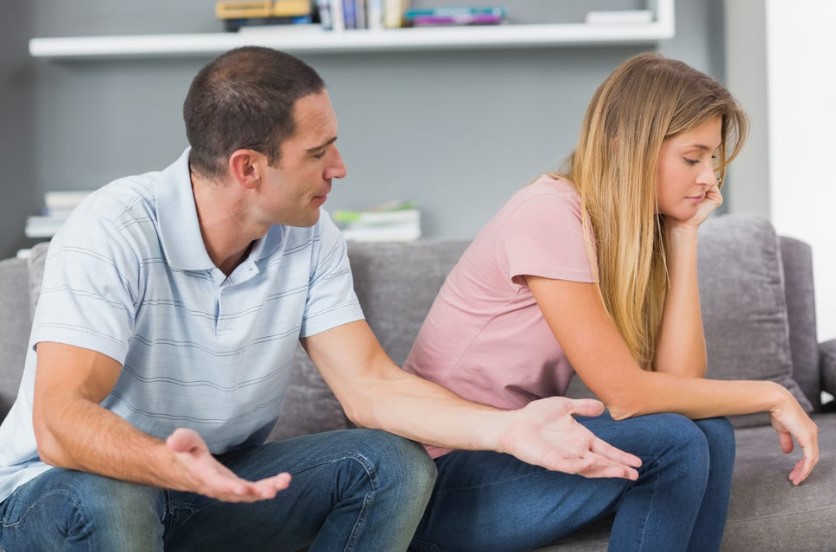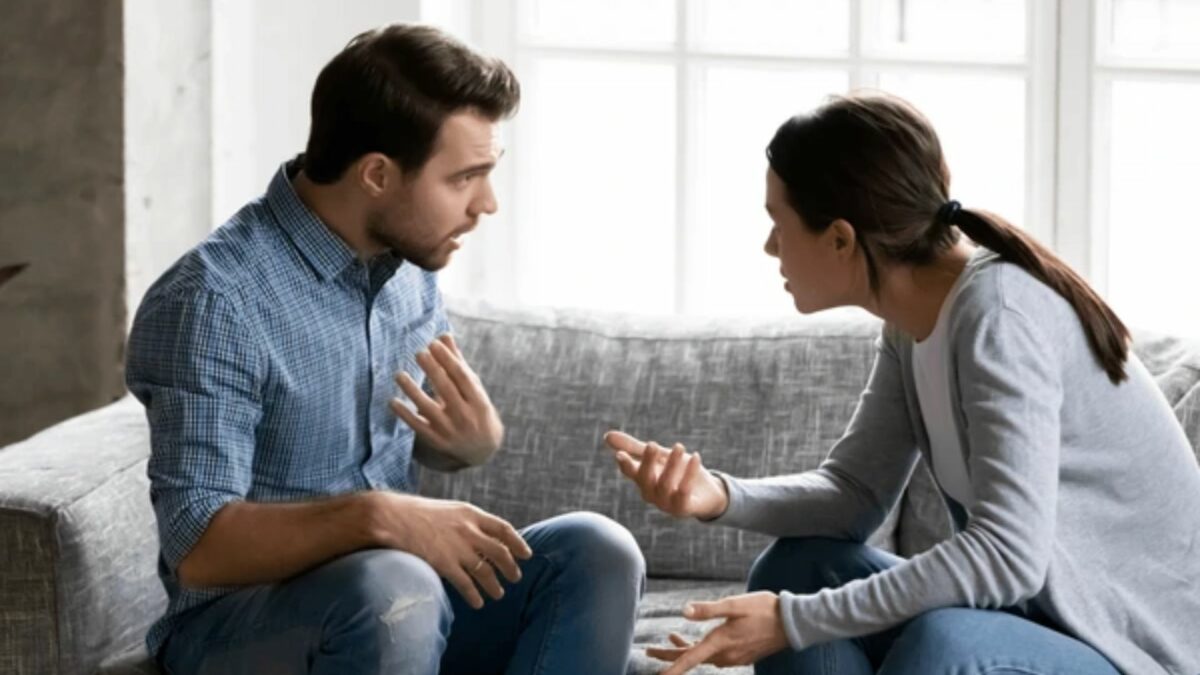Are you finding yourself constantly on the receiving end of your husband’s blame game? You’re not alone. Many women grapple with this challenging dynamic in their relationships. It’s a problem that can leave you feeling frustrated, confused, and emotionally drained. But why does this happen? What’s driving your husband to point fingers at you for everything?
This article will delve into the reasons behind this behavior, shedding light on the psychological patterns that may be at play. We’ll explore how to navigate these situations, and most importantly, how to foster a healthier, blame-free relationship. So, if you’re tired of being the scapegoat and are ready for change, you’re in the right place. Let’s start this journey together.
Understanding Blame in Marital Relationships

Blame serves as a defense mechanism in marital relationships, often hindering effective communication and mutual respect. This pattern of behavior becomes particularly profound when one partner, typically the husband in this context, assigns blame to the other partner consistently. Understanding why this occurs can illuminate the underlying dynamics at play, providing a foundation for constructive change.
Psychological Foundations of Blaming Behavior
Blaming can be a direct outcome of certain psychological behaviors, insecurities, and past experiences. At its essence, blame shifts responsibility away, often reflecting the individual’s difficulty in accepting their own flaws or errors. For instance, a husband blaming his wife for his professional failures might be evading the discomfort tied to acknowledging his own inadequacies or mistakes. Studies, such as those from the American Psychological Association, indicate that individuals with a high propensity to blame others often struggle with self-image issues, and dishing out blame serves as an external focusing mechanism to avoid introspection.
The Impact on Interpersonal Dynamics
Consistent blaming can severely strain a marriage’s interpersonal dynamics. It fosters an environment of negativity, with the blamed individual often feeling undermined or unvalued. If your husband constantly assigns blame to you, it can lead to resentment, anger, hurt, and even emotional exhaustion. This souring of emotions can suffocate positive interactions, forming an obstacle in resolving conflicts and establishing emotional intimacy.
Common Reasons Why Partners Might Blame Each Other

In challenge-filled marital relationships, assigning blame often becomes a coping mechanism for some individuals. Understanding the common reasons behind this behavior can shed light on its roots and offer potential solutions. This section provides insights into two predominant causes: stress and insecurities, or personal issues.
Stress and External Pressures
Confronted with stress and external pressures, partners might find blaming a convenient way out. It’s a method of offloading their own stress onto someone else, providing a temporary feeling of relief. For instance, financial burdens triggered by job instability can make a husband prone to laying blame on his spouse. This course of action, however, intensifies tension rather than abating it. Neglecting couples’ supportive duties, it leads to the damaged dynamics of shared stress management.
Insecurities and Personal Issues
Insecurities serve as yet another contributor to the ominous blame game in marriages. Partners battling these personal issues may resort to blaming their spouse to deflect attention from their own perceived shortcomings. For instance, a husband who feels inadequate or insecure about his role may blame his wife for any perceived failure. Although this avoids immediate discomfort, it fosters relationship toxicity in the long haul, impeding mutual respect and trust. Thus, dealing with personal insecurities assists in diffusing unnecessary blaming in marriages.
Communication Strategies to Address Blaming

Continuing our journey into this intricate issue, let’s delve into some effective strategies that can reduce blaming in relationships, particularly focusing on communication techniques.
Importance of Active Listening
Playing a profound role in fostering open, honest communication, active listening isn’t just about hearing. It’s about showing attentiveness, understanding the content and acknowledging your spouse’s emotions. By doing so, you’re not just hearing, you’re paying attention. Forget about your smartphone, iPad, or television, and focus solely on your partner’s words and feelings. Use cues, such as nodding your head, maintaining eye contact, and responding appropriately, to show that you’re actively listening. Remember, effective communication starts with active listening.
The Role of Empathy and Validation
Empathy bridges emotional gaps and fosters shared understanding, silk-threading stronger bonds between you and your spouse. Put yourself in your partner’s shoes, and try to understand the underlying emotions behind their words. It’s not about agreeing or disagreeing, but about comprehending their perspective.
Validation doesn’t mean that you approve of or agree with everything your spouse says. It simply means that you recognize their feelings as valid. Validate emotions with phrases such as, “I understand why you’re feeling this way”, or, “That must be hard for you.” In doing so, you’re not only acknowledging their feelings, but you’re also creating a safe, non-judgmental space where your partner can express themselves without fear of blame.
These key strategies, when applied conscientiously, can aid in reducing blame, enhancing respect, and fostering healthier, blame-free relationships. Remember, these changes aren’t going to happen overnight. It’s a journey that requires patience, persistence, and plenty of understanding. So, let’s embark on this journey together, transforming conflict into connection, one conversation at a time.
Read More : 10-tips-for-handling-relationship-conflicts
When to Seek Professional Help

After understanding the reasons behind your spouse’s blaming behavior, and practicing improved communication techniques, you might still find consistent blame within your relationship affecting your emotional well-being. It’s in these instances, professional help, like marriage counseling, becomes invaluable.
Signs That You Need Marriage Counseling
Recognizing the need for professional help might be challenging, but certain signs suggest you could benefit from counseling. The consistent feeling of being blamed can drive a wedge between you and your spouse. It can foster resentment, causing you to withdraw emotionally. On the flip side, if your spouse isn’t ready or willing to acknowledge his behavior or work on his issues, counseling might be in order.
Consider seeking support if you’re noticing patterns like constant conflict with no resolution, avoidance of each other, or experiencing severe emotional reactions. For instance, if arguments about household chores frequently escalate into blaming sessions, or if your spouse dislikes discussing his feelings leading you to feel ignored, a counselor might help.
Choosing the Right Therapist
Once you’ve acknowledged the need for therapy, selecting the right therapist is crucial. Look for a licensed professional with experience in couples or marital therapy. Some therapists specialize in specific therapy styles, such as cognitive-behavioral therapy (CBT), that can provide skills to change negative thought and behavior patterns.
Ask potential therapists about their approach to couples therapy, their experience in dealing with similar issues, and the preferred frequency of meetings. Having this information can help you make an informed decision. Remember, it’s essential for you and your husband to feel comfortable with the therapist. Your journey towards healing starts when you’re both ready and open to exploring your problems and working towards a shared resolution.
Taking that step can be challenging but remember that admitting there’s a problem is the first step to resolving it. And sometimes, professional help might be just what you need to get your relationship back on a healthier track.
Read More : Red-flags-in-a-guy
Conclusion
You’ve now understood the roots of blame in your relationship and how it’s often driven by personal insecurities and past experiences. It’s essential to address these issues head-on, as they can hinder communication and respect. Remember, active listening, empathy, and validation are powerful tools to reduce blame and enhance understanding. Yet, don’t shy away from seeking professional help if your emotional well-being is at stake. Recognizing the signs that indicate the need for therapy and choosing the right therapist are pivotal steps towards healing. With patience and persistence, you can navigate these challenges and foster a healthier, blame-free relationship. Remember, it’s not about who’s right or wrong. It’s about understanding, respect, and love. You’ve got this!
Frequently Asked Questions
Why do husbands blame their wives in marital relationships?
Husbands may blame their wives due to psychological factors like insecurities and past experiences. This blame might be a coping mechanism for stress, highlighting the importance of addressing personal insecurities for healthier relationships.
What are effective communication strategies to reduce blaming in relationships?
Strategies like active listening, empathy, and validation can help reduce blaming. Effective communication helps enhance respect and understanding between partners, thereby promoting healthier relationships.
When should couples consider seeking professional help?
Couples should consider seeking professional help such as marriage counseling when consistent blame affects emotional well-being. Key signs include feeling consistently blamed, emotional withdrawal, and a spouse unwilling to address their behavior.
How should we choose a suitable therapist for marriage counseling?
Choose a therapist experienced in couples therapy for effective treatment. Acknowledging the need for therapy and finding a therapist with whom you feel comfortable are crucial steps towards resolving relationship issues.

